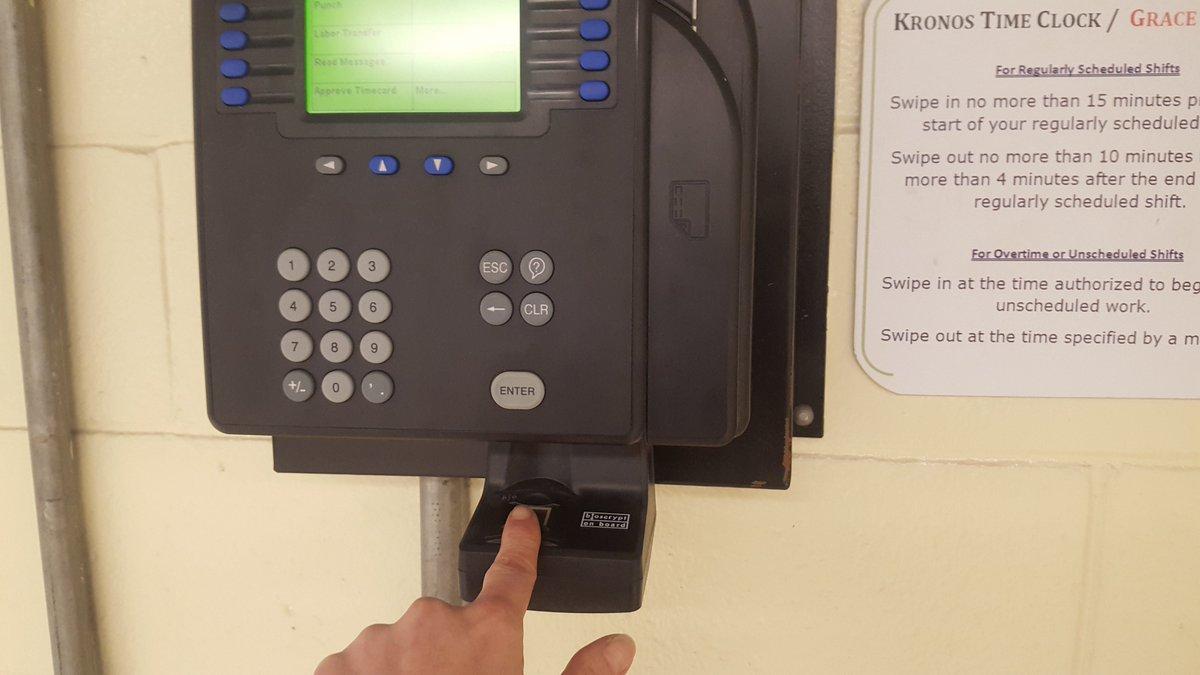Technology
Fingerprint scanners risky amid coronavirus pandemic — it’s a touchy subject
By Yasmeen Qahwash
Mar. 20, 2020
As COVID-19 cases rapidly increase all around the world, businesses, public servants, government officials and health care workers continue to take the necessary precautions to try to stop the spread.
Not only are large events such as conferences, sporting events, religious services and music festivals being canceled to help combat the pandemic, but businesses are also beginning to look at their own technology as potential health risks to their employees as well.
Biometric time clocks have become increasingly popular among many organizations in recent years as they heighten security and add convenience but are now being looked at as an epicenter for germs in the workplace that could include the coronavirus. This is one of the many examples of how the pandemic is affecting life at work.
Also read: Solving the concern over clean time clocks with a mobile solution
According to the Centers for Disease Control and Prevention, it is possible for a person to get COVID-19 — commonly known as the coronavirus — by touching a surface that has the virus on it and then touching their own face. Most vulnerable workers have to clock in and out, including in hospitals and health facilities. Considering the large number of people who must place their fingers or entire hands on these time clocks day in and day out, it didn’t take long for employees to raise concern.
The New York Post reported that employees in New York City have protested the fingerprint biometric time clocks causing organizations such as the New York Police Department and the Metropolitan Transit Authority to reconsider their time and attendance systems. Since then, the NYPD decided to suspend fingerprint biometrics at its headquarters. The MTA also said that it will stop using fingerprint-scanning time clocks in an attempt to slow down the spread of the virus.
There are more than 150 countries and territories that have confirmed coronavirus cases, according to an NBC news report. The CDC has also reported that in the US alone, there are 7,038 total cases, including 97 deaths — and the numbers are still climbing globally. It is crucial to keep workplaces as clean as possible for those who are spending more waking hours at work than at home.
The workplace has many hiding spots for germs, such as keyboards, elevator buttons door handles and time clocks. Since the novel coronavirus is most commonly transmitted between people, touching infected surfaces can pass the virus, too. Keeping these smaller objects in mind, it is important to continuously clean every one of these surfaces throughout the day and eliminate as many risks as possible.
Also read: Workforce time clocks keep punching away. Thanks, Coldplay
The Occupational Safety and Health Administration and the CDC have recommended to wipe down workstations periodically, encourage employees to wash their hands more often, sanitize when soap is not available and save the handshakes for another time.
COVID-19 has no doubt taken a toll on businesses as a result of employee illness and temporary closures. Many workplaces are switching to mobile time and attendance technology not only in an attempt to make this process more convenient but to also create a more sanitary workplace by reducing possible exposure to their employees.
For Workforce.com users, there are features on our platform available to keep communication lines open during this difficult time. Engage with your staff, schedule according to operational changes, manage leave, clock in and out remotely, and communicate changes through custom events, among other things. Organizations impacted by COVID-19 can also benefit from Workforce.com’s employee app.
Schedule, engage, and pay your staff in one system with Workforce.com.
